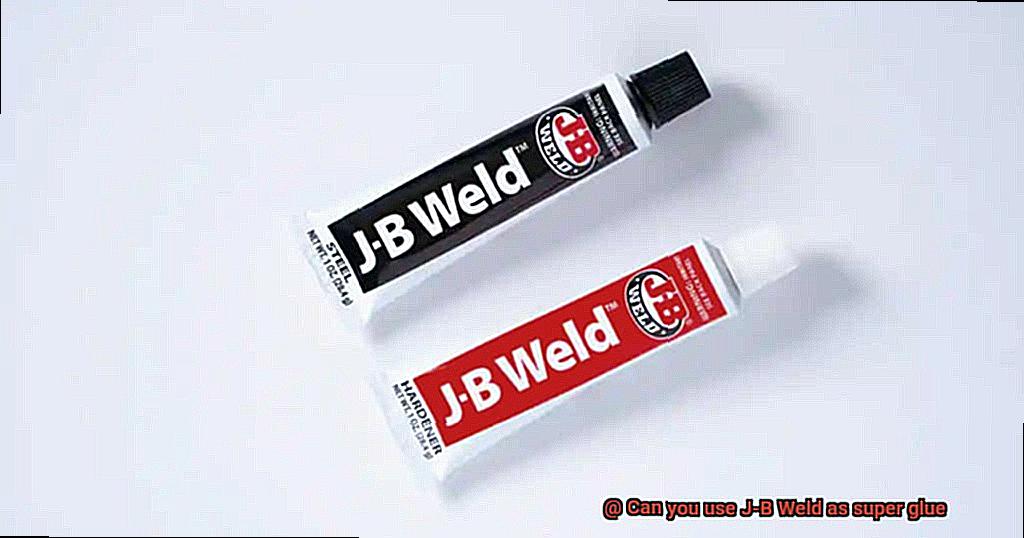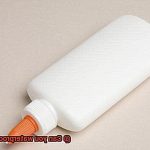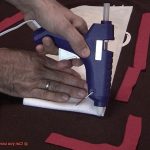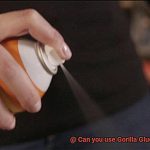Are you in a sticky situation where you need to glue something together but don’t have any super glue? Enter J-B Weld, the two-part epoxy that’s known for its unbeatable bonding strength and versatility. But can it really replace super glue? The answer is yes, technically.
J-B Weld may not be specifically designed as a super glue replacement, but it can certainly do the job in a pinch. It hardens into a durable bond strong enough to handle even the toughest projects. However, before you go reaching for the J-B Weld, there are some key differences to keep in mind.
Unlike traditional super glue, J-B Weld takes longer to dry and harden – sometimes several hours. It also requires more preparation and care when applying, so it’s not ideal for quick fixes. That said, if you’re working on heavy-duty projects or repairs, J-B Weld is definitely worth having on hand.
In this blog post, we’ll explore how to use J-B Weld as a substitute for super glue and provide some tips to ensure you get the best results. So gather ’round handy folk because we’re about to dive into the world of J-B Weld and how it stacks up against super glue.
What is Super Glue?
Contents
Super Glue, also known as cyanoacrylate adhesive, is a game-changing invention that has made bonding tasks quicker and easier than ever before. This powerful adhesive was first discovered in 1942 by Dr. Harry Coover, who was working on developing clear plastic gun sights for the military. Dr. Coover accidentally spilled a small amount of the substance on his fingers, and to his surprise, found that it formed a strong bond that was difficult to break.
Super Glue works through a process called polymerization, where it rapidly hardens and forms a strong bond when it comes into contact with moisture. This makes it particularly effective in bonding non-porous materials such as metal, plastic, and rubber. Additionally, Super Glue sets within seconds of application, making it perfect for quick repairs or bonding tasks.
Despite its many advantages, Super Glue is not suitable for all types of materials or applications. It may not work as well on porous surfaces such as wood or fabric, and it can be brittle and prone to cracking if exposed to extreme temperatures or stress.
While J-B Weld is known for its strength and durability, it is not recommended as a substitute for Super Glue. J-B Weld requires more preparation before use and takes longer to cure. Moreover, it can be challenging to remove once it has cured. Super Glue, however, can be easily removed with acetone or nail polish remover.
What is J-B Weld?
Look no further than J-B Weld. As an expert on this question “What is J-B Weld?” I can tell you that it’s a two-part epoxy adhesive that packs a mighty punch. This adhesive is like a superhero among adhesives, with its ability to bond metal, wood, plastic, ceramic, and more with ease.
J-B Weld is perfect for those high-stress situations where other adhesives just won’t cut it. Need to fix a broken exhaust pipe? J-B Weld can handle it. Want to repair a cracked engine block? J-B Weld has got you covered. Its chemical reaction creates a bond that is resistant to water, chemicals, and heat, making it a reliable choice for industrial applications as well.
But wait, there’s more. J-B Weld comes in different varieties depending on what you want to use it for. Each type has its own unique formulation and is designed to work on specific materials. Here are some of the popular types:
- J-B Weld Original: This is the classic formula that started it all. It works on a variety of surfaces and is perfect for those tough repairs.
- J-B Kwik Weld: This is a fast-setting version of the original formula. It dries in just 4 minutes and is great for quick repairs.
- J-B PlasticWeld: This formula is specifically designed for bonding plastics.
- J-B MarineWeld: This formula is designed to withstand harsh marine environments and can be used on boats, jet skis, and other watercraft.
- J-B WoodWeld: This formula is perfect for bonding wood surfaces and can be sanded or painted once dry.
Now, you may be thinking “Can’t I just use super glue instead?” While super glue is fast-acting and great for non-porous surfaces like metal and plastic, it can be brittle and crack over time. J-B Weld takes a bit more prep time but offers superior strength and durability that can withstand harsh conditions.
The Difference between Super Glue and J-B Weld
When it comes to adhesives, there are countless options available in the market. However, two of the most popular choices are super glue and J-B Weld. While they may seem similar on the surface, there are distinct differences that set them apart.
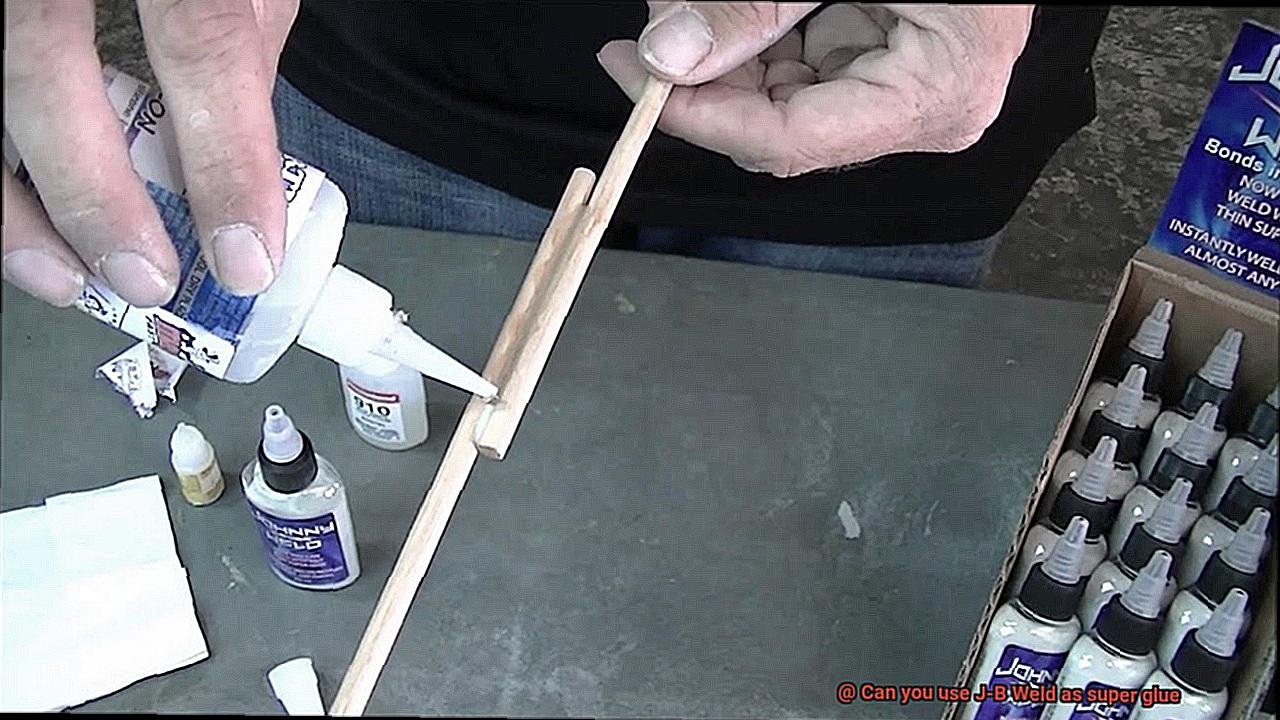
Super glue, also known as cyanoacrylate adhesive, is a fast-drying and strong bonding agent. It’s perfect for small repairs and projects that require a quick fix. Whether it’s a broken figurine or a loose hinge, super glue can bond a variety of surfaces like plastic, metal, and rubber. However, it may not be ideal for larger or heavier objects as it may not be able to support their weight.
On the other hand, J-B Weld is an epoxy-based adhesive that is designed to bond larger and heavier objects together. It takes longer to dry than super glue but creates a stronger and more durable bond. If you’re looking to fix a broken chair leg or repair your car’s engine block, J-B Weld is the perfect solution. It works wonders on materials like metal, wood, and ceramics.
One of the most significant differences between super glue and J-B Weld is their chemical composition. Super glue is made up of cyanoacrylate monomers while J-B Weld contains two-part epoxy resin and a hardener. This difference in composition affects their bonding strength and the types of surfaces they can be used on.
Another major difference between these two adhesives is their flexibility. Super glue dries to a hard finish and can become brittle over time. J-B Weld, however, retains its flexibility even after it dries, making it better suited for use on objects that may undergo stress or movement.
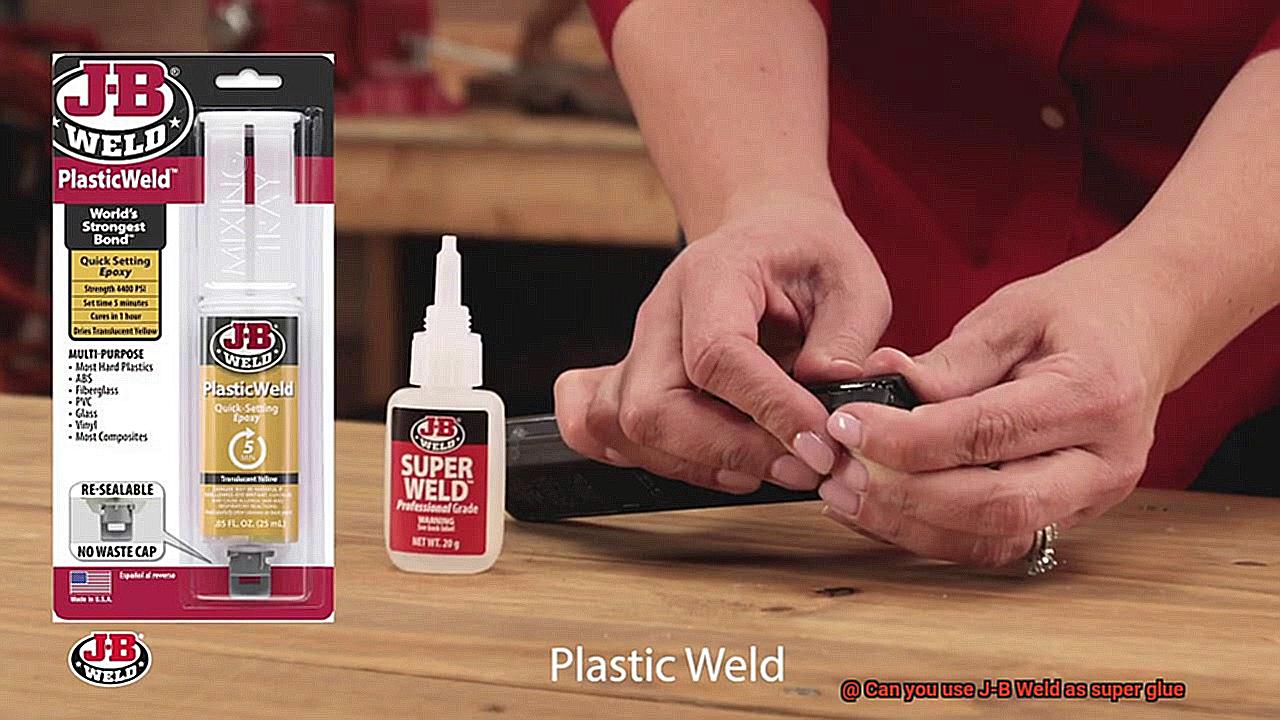
Advantages of Super Glue
Super glue, also known as cyanoacrylate adhesive, is a go-to for those seeking a strong and speedy bonding solution. Its unique formula boasts several advantages that make it a versatile and reliable adhesive for both personal and industrial use.
One of the primary advantages of super glue is its ability to bond to a wide variety of materials. From plastics to metals, ceramics to wood, super glue has the power to create a permanent bond that withstands harsh environmental conditions. This versatility makes it an ideal adhesive for DIY projects around the house or in industrial applications.
Another significant advantage of super glue is its fast-drying formula. Unlike other adhesives that require extended drying times, super glue can bond within seconds. This quick-drying feature makes it an ideal solution for quick repairs or projects that demand immediate bonding. Additionally, super glue creates a permanent bond that is resistant to water, heat, and most chemicals, ensuring that your project stays intact.
The long shelf life of super glue is yet another advantage to consider. With proper storage, this adhesive can remain effective for up to two years or more, making it a cost-effective solution for those who frequently use it.
In summary, the benefits of using super glue are many. Its versatility and fast-drying formula make it an exceptional choice for various DIY projects or industrial applications. Its resistance to harsh environments and long shelf life further add to its value. However, it’s important to note that not all materials or applications may be suitable for this adhesive. It’s always best to read the manufacturer’s instructions before using any adhesive and test a small area before applying it to a larger surface.
Advantages of J-B Weld
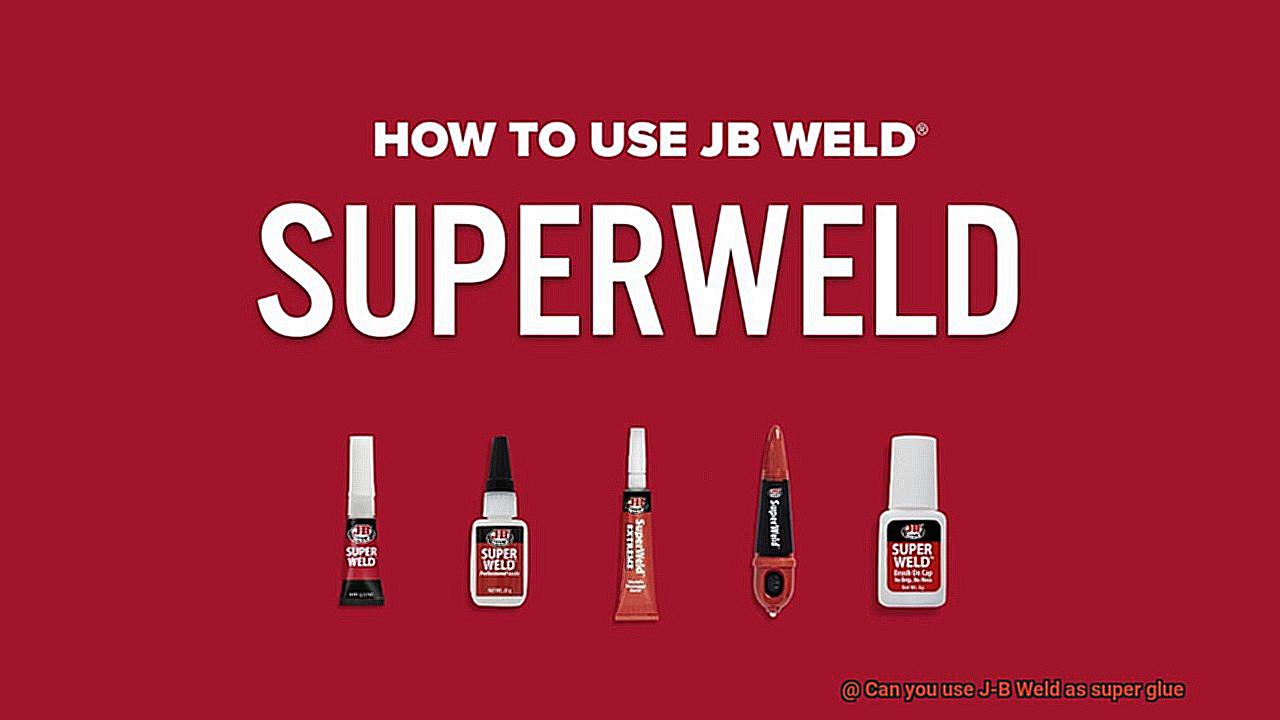
When it comes to automotive repairs or DIY projects, regular super glue just won’t cut it. That’s where J-B Weld comes in – a two-part epoxy with some serious advantages over traditional super glue.
Strength is one of the biggest advantages of J-B Weld. Its permanent bond can withstand heavy loads and high temperatures, making it a reliable choice for automotive repairs. But it’s not just for cars – J-B Weld’s strength makes it a go-to adhesive for all kinds of DIY projects around the home or workshop.
Versatility is another key advantage of J-B Weld. It can be used on a wide range of surfaces, including metal, wood, plastic, and ceramic. So whether you’re repairing a broken piece of furniture or fixing a leaky pipe, J-B Weld has got you covered.
And unlike regular super glue, J-B Weld has a longer cure time which allows for more time to make adjustments before the bond sets. This is especially useful when working on larger projects or bonding irregularly shaped surfaces. Plus, the longer cure time doesn’t compromise its strength or durability.
Speaking of durability, that’s another major advantage of J-B Weld. It’s resistant to water, chemicals, and impact once it’s cured. So you can trust it to last for years without breaking down or deteriorating over time.
Disadvantages of Super Glue
While super glue may seem like a quick and easy solution, it comes with several disadvantages that you should be aware of before using it.
One of the most significant disadvantages of super glue is that it’s not as strong as J-B Weld, making it unsuitable for heavy-duty applications or items that will be subjected to a lot of stress or strain. J-B Weld, on the other hand, can conquer any surface and resist water, chemicals, and impact over time.
Another disadvantage is that super glue forms a strong, permanent bond quickly, making it challenging to remove once applied. If you accidentally get super glue on your skin, it can be painful and cause chemical burns. Thus, caution is necessary when handling this adhesive.
Moreover, super glue dries out quickly if not stored correctly and may not form a strong bond at all. This means that you may need to replace your tube more frequently than other adhesives.
Lastly, super glue can be quite expensive compared to other types of adhesives. While it may be convenient and easy to use, the cost can add up over time if you use it frequently or for large projects. In contrast, J-B Weld is relatively inexpensive and can be used for a wide range of applications.
Disadvantages of J-B Weld
Though this glue is known for its strength and durability, there are some downsides that may affect its usefulness in specific situations.
Firstly, the drying time of J-B Weld can be a disadvantage. To cure completely, it requires a minimum of 4-6 hours, which can be a frustrating wait when you need to glue something quickly. This becomes an issue for those working on time-sensitive projects or quick repairs.
Moreover, once J-B Weld has cured, removing it becomes extremely difficult, making modifications or repairs to the glued item challenging. The limited shelf life of around 2 years also raises concerns as the glue may eventually become ineffective and lose its bonding strength.
The strong odor of J-B Weld further adds to its list of disadvantages. The unpleasant odor can make it unsuitable for use in enclosed spaces, and the high heat resistance, though an advantage in most cases, makes it difficult to remove if modifications or repairs are necessary.
J-B Weld may not adhere well to certain surfaces such as plastic, PVC, and rubber, limiting its usefulness. Finally, the glue contains chemicals that can be toxic if ingested or inhaled. Hence, it’s crucial to use it in a well-ventilated area and wear protective gear like gloves and masks.
Can You Use J-B Weld as a Substitute for Super Glue?
The answer is yes, but with some important considerations.
Super glue is a quick-fix adhesive that bonds instantly upon contact with surfaces. It works well for small repairs, such as gluing together a broken figurine or fixing a small piece of plastic. However, it has limitations when it comes to bonding materials like metal or ceramics.
On the other hand, J-B Weld is an industrial-strength epoxy that creates a durable bond over time. It requires mixing two components together before use, making it ideal for heavy-duty repairs like engine blocks, welds, and plumbing fixtures. Once cured fully, J-B Weld can withstand heavy loads and high temperatures.
The choice between the two adhesives depends on the materials you are bonding and the strength of the bond you need. If you need a quick fix for something small and lightweight, super glue may be the better option. However, if you require a strong and long-lasting bond for heavy-duty repairs, J-B Weld is the way to go.
It’s worth noting that J-B Weld can be more challenging to work with than super glue due to its mixing requirement. If you don’t get the ratio right, there’s more room for error. Additionally, J-B Weld takes longer to cure fully, so patience is essential before using the repaired item.
In conclusion, both J-B Weld and super glue have their unique purposes. It’s important to consider the materials you’re bonding together and the strength of the bond needed before deciding which adhesive to use. When in doubt, consulting an expert or doing some research will ensure you’re using the right product for the job.
YlvHjxprYnU” >
Also Read: Is JB Weld Sandable?
Conclusion
In conclusion, J-B Weld is a viable alternative to super glue for specific circumstances. Although not intended as a direct substitute, J-B Weld boasts exceptional bonding strength and versatility, creating an unbreakable bond that can handle even the toughest of projects. However, it’s crucial to keep in mind some key differences before reaching for the J-B Weld.
Unlike traditional super glue, J-B Weld requires more preparation and care when applying and takes longer to dry and harden – sometimes several hours. Therefore, it may not be suitable for quick fixes. Nonetheless, if you’re working on heavy-duty projects or repairs that require a robust adhesive solution, J-B Weld is undoubtedly worth having on hand.
When deciding between J-B Weld and super glue, it’s vital to consider the materials you’re bonding together and the strength of the required bond before making a decision. Super glue works well for small repairs but may not be adequate for larger or heavier objects. On the other hand, J-B Weld is an industrial-strength epoxy that creates a durable bond over time and is ideal for heavy-duty repairs.
In summary, both adhesives have their unique purposes, and selecting the right product depends on your specific needs and preferences.

